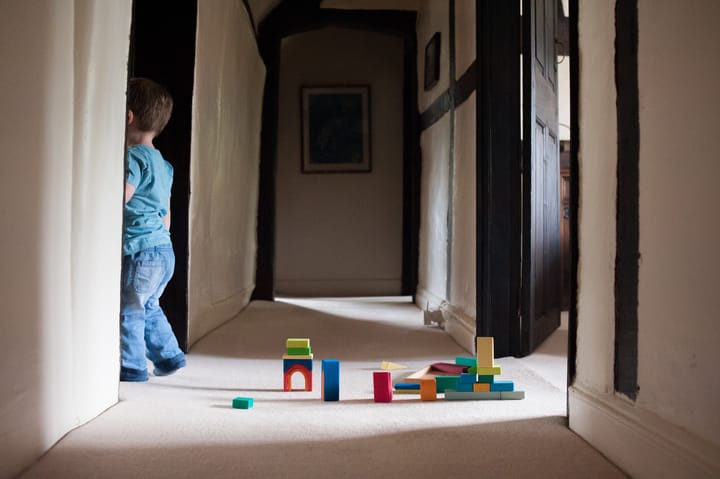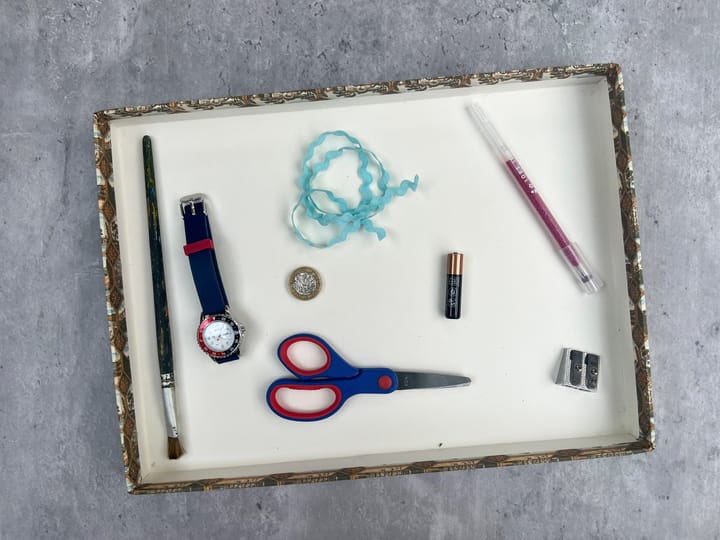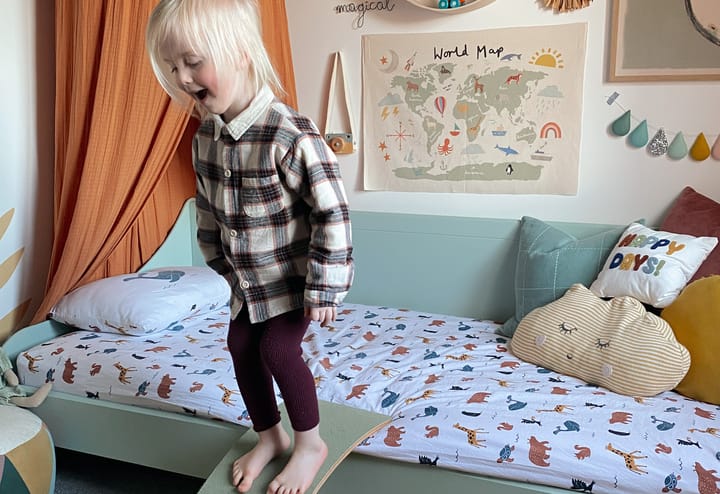Symbolic play

Helping your child make sense of difficult experiences through pretend play
Do you ever have one of those days when everything just seems perfect?
Blue skies and sunshine, a long, lazy afternoon stretching out before you?
I was having one of those days. Just standing in the park, just being.
Then, Woof!
Graarr!
I was on my back, a big black dog pinning me down, its front paws on my shoulders, its nose touching mine.
I had just learnt to walk. Life had been going so well. But now I was terrified.
The dog's owner pulled him off.
My dad laughed.
In fact, he teased me about it for years. Not with any malice, but he enjoyed telling the story nevertheless.
That's why you're afraid of dogs.
Thanks, Dad. Maybe you could have tried the Symbolic Play Play Tool instead.
A shock and a path to healing
That moment was what psychologists call an ontological shock. My view of the world as a safe and predictable place was shattered in an instant. For a child, this kind of experience can leave lasting impressions unless it’s addressed.
Therapists often work with similar moments in trauma recovery. When someone experiences something that fundamentally challenges their understanding of safety and trust, therapy focuses on reframing the memory. This process allows the individual to regain a sense of control and safety. Play therapists use similar methods, tailoring them to children’s developmental needs. Through symbolic play, a child can process her fears and gradually replace them with feelings of empowerment.
In this context, play becomes a tool for healing. A friendly stuffed dog can become a stand-in for the real thing, letting your child control the story. By pretending to command the dog or teaching it tricks, she can reimagine the original event in a way that feels safe and manageable. It’s not just a game - it’s therapy in action, helping her rebuild trust in the world.
By exploring difficult experiences in this gentle, playful way, we help our children recover from fear and uncertainty. Symbolic play doesn’t just heal; it transforms, giving children the confidence to face challenges with resilience and creativity. It gives your child the confidence to re-engage with experiences that might otherwise overwhelm her. It strengthens your attachment bond.
Materials needed
- Props related to the event or situation, such as stuffed animals, dolls, or toy vehicles.
- Optional: everyday household items to act as substitutes (e.g., a spoon as a microphone).
Instructions
- Identify the situation. Think of a recent experience your child might be processing, such as meeting a new pet, visiting the doctor, or starting nursery.
- Introduce props. Offer toys or items related to the situation. For example, use a stuffed dog if your child is nervous around animals.
- Start the pretend play. Begin a simple scenario based on the event. For example, pretend the stuffed dog is visiting her house and wants to be her friend.
- Follow her lead. Allow your child to take control of the play. She might change the story entirely - let her explore the scenario in her way.
- Reinforce positive outcomes. If appropriate, guide the play towards a positive resolution. For example, the dog could follow her commands and show it’s safe to interact.
Tips
- Be patient. Your child might need several play sessions to fully process a challenging experience.
- Respect her emotions. Don’t dismiss her fears or anxieties - play is a safe way for her to work through them.
- Keep it light. Use humour and warmth to help her feel safe during the process.
Expected outcome
- Emotional processing. Your child gains the opportunity to reinterpret difficult situations in a safe and controlled environment.
- Confidence building. As she resolves these scenarios through play, her self-assurance grows.
- Stronger attachment. Engaging in symbolic play together strengthens your bond and helps her feel understood.
Why this works
Symbolic play helps your child make sense of her world by allowing her to replay and reinterpret events. Through this process, she can confront fears and uncertainties in a non-threatening way. By joining her in the play, you show her that you are present and supportive, even during challenging times. This builds her resilience and trust in your relationship.
Final word
Symbolic play transforms difficult moments into opportunities for growth and understanding. By joining your child in her imaginative world, you provide her with the tools to face her fears and build confidence. Try it next time your child encounters a challenging experience and see how it helps her process and thrive. Let me know how it works for you in the comments below.
Read the rest of the attachment play tools:
- Non-directive play
- Symbolic play
- Contingency play
- Nonsense play
- Separation games
- Power-reversal games
- Regression games
- Activities with body contact
- C0-operative games
- Non-directive play
- Symbolic play
- Contingency play
- Nonsense play
- Separation games
- Power-reversal games
- Regression games
- Activities with body contact
- C0-operative games



Comments ()